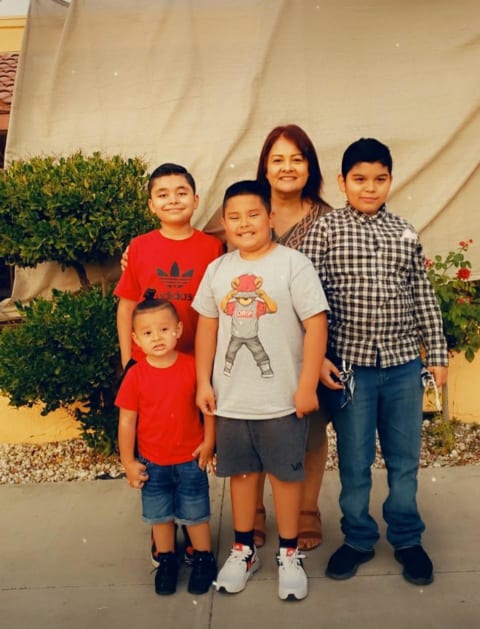
A Lasting Gift
Story 24
Fanny Hernandez, a mentoring assistant at the community-based nonprofit Garden Pathways in Bakersfield, Calif., was ready to make the change as soon as the opportunity opened. She is taking advantage of a new tattoo removal program that is a partnership between Garden Pathways and Adventist Health.

“Growing up, you think the first person you meet, you love, and you write stuff on your body that doesn’t have any meaning,” Hernandez shares. “I just don’t feel like it fits me anymore.”
The program, which opened in early May, is available for free to those who meet certain eligibility requirements on a first-come, first-served basis. For a commitment of four to 10 laser treatment sessions of about 15 minutes each, participants like Hernandez can face new opportunities with more confidence.
“We all have a past,” says Hernandez. “Some of us write it on our body and some of us don’t. To be able to have the opportunity to walk into a place and not be judged is an amazing feeling.”

For some, it’s about much more than opportunity. Among those who are prioritized for treatment in the tattoo removal program are victims of human trafficking, for whom tattoo removal can be a matter of personal safety. “These tattoos are called ‘branding’ and actually tie them to the perpetrator,” explains Juan Avila, Chief Operating Officer of Garden Pathways. “[They] can put someone at risk for potential harm.”
The program carefully prioritizes those who are eligible for the service, which – with six to eight weeks between at least 10 treatment sessions – requires a long-term commitment.

“First priority goes to current Garden Pathways clients, anybody whose visible tattoos are a barrier to employment, education or economic mobility,” Avila explains. Top priority also goes to victims of sex trafficking, followed by individuals referred by community partners like public agencies, faith-based organizations and other nonprofit organizations. Self-referrals are also served if the other priorities have been served and volunteers are available to provide the service.
The program is staffed by medical caregivers who volunteer their time and are licensed to operate the lasers, including Shawn Pettis, RN, who also works at Adventist Health Bakersfield.
“As soon as I found out about this, I signed up,” Pettis shares. “As nurses ... we’re taking care of people, but we’re getting paid for that, and I wanted to do something charitable. I get to talk to people about what they’re doing in their lives and how they’re changing it, and I have the time to do that because I’m spending 15 or 20 minutes with them.”

“This is how excited we are to give people the opportunity to change their lives.”
Although Garden Pathways and Adventist Health planned to launch the tattoo removal program in 2020, COVID put things on hold. But Avila says as soon as the pandemic case numbers started to look better, things started moving again. “I get excited about how generous Adventist Health has been with championing this effort,” he says. “This is how excited we are to give people the opportunity to change their lives.”
And, Avila says, the plans for the program go beyond the current scope of services.
“Our vision is to open up pathways for educational and employment opportunities,” Avila says. “For the next 10 sessions, we’re going to be in their ear saying, ‘What about mentoring? What other resources do you need? Can we help you out with anything else?’ We’re hoping that this becomes an outreach strategy for some of the hardest hit populations so they can access other services.”
Related stories

Todd Reese

Mark Mitchelson

Milad Pezeshki

Somos | "We Are"

Sarah Gutierrez

Cory Ferrier

Central Coast Service Area | Celebration Event

Mara Bryant

Camie Overton

Jayant Eldurkar

Terry Johnsson

Nursing Chose Me

Jayme Mason

Patrick Takahashi

Home again at Adventist Health White Memorial Montebello

Sarah Shelbourne

Jenny Lavers

Shane Cox

Kiyoshi Tomono
